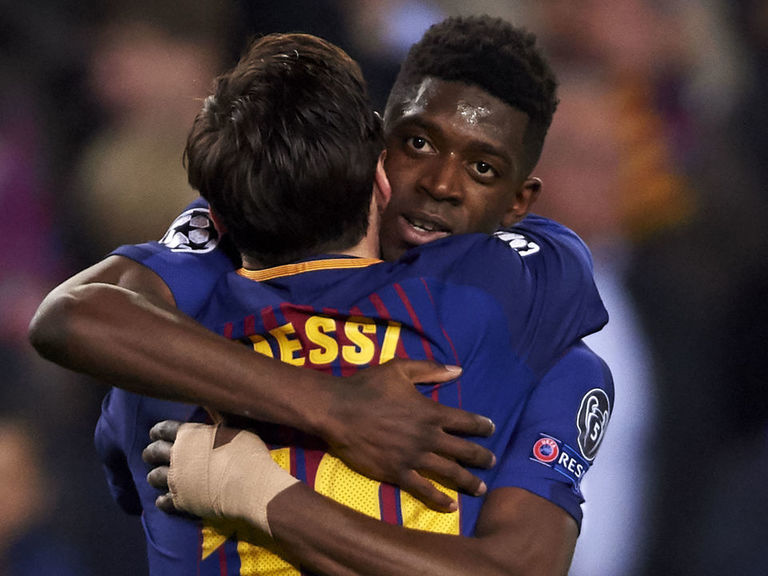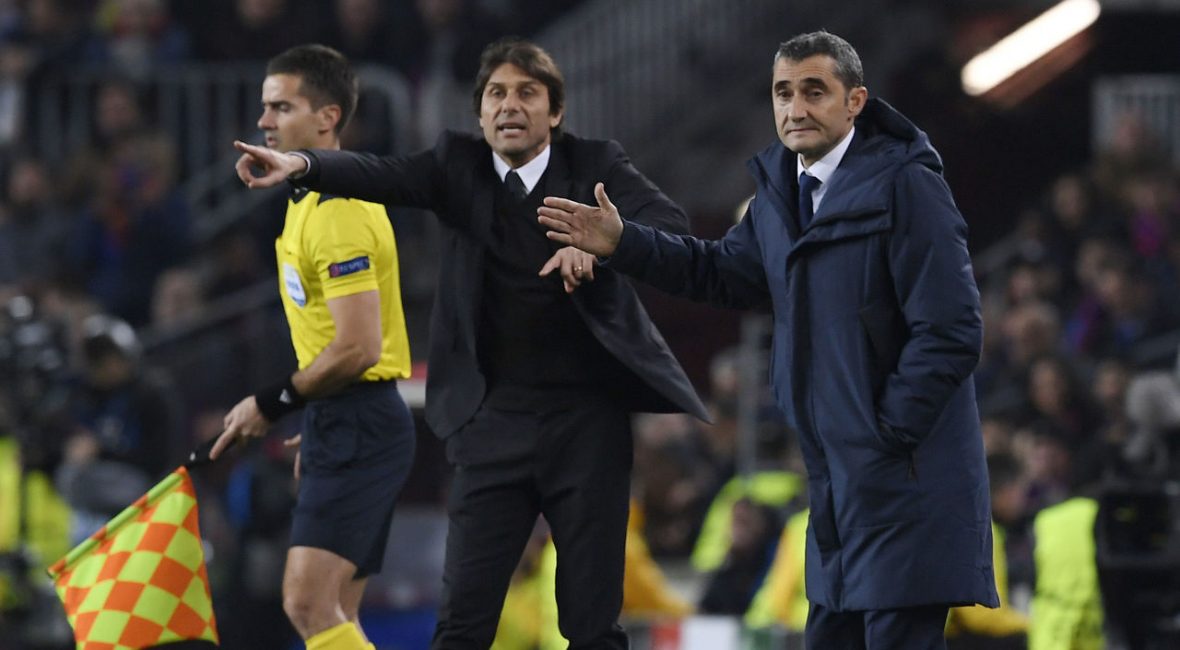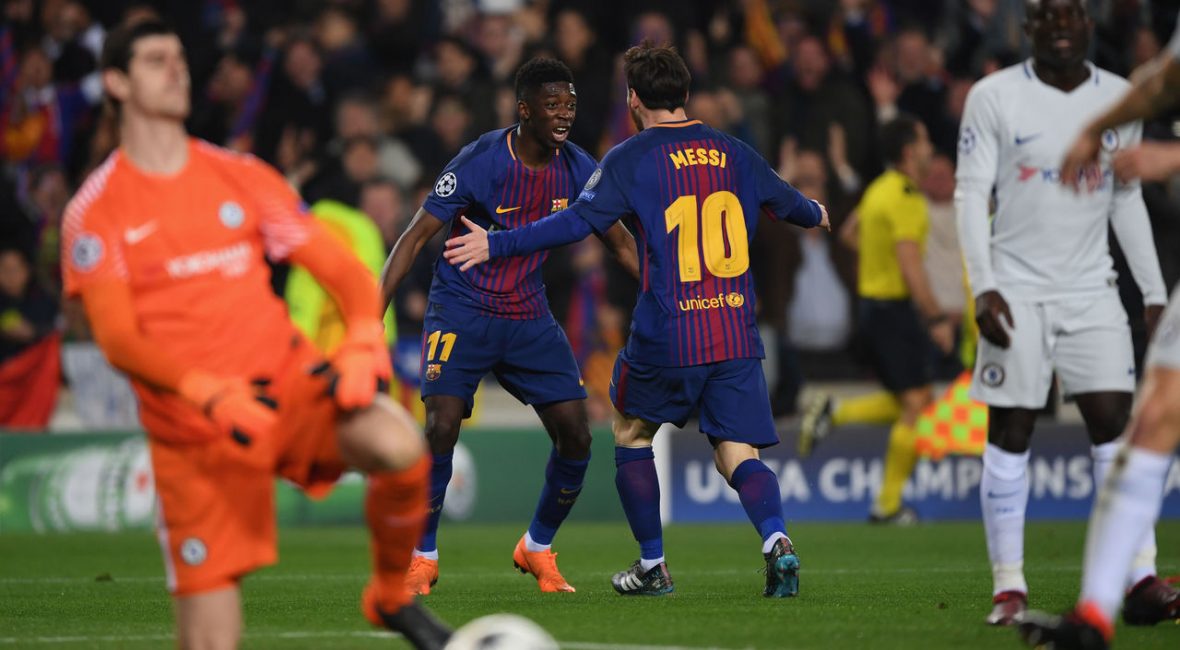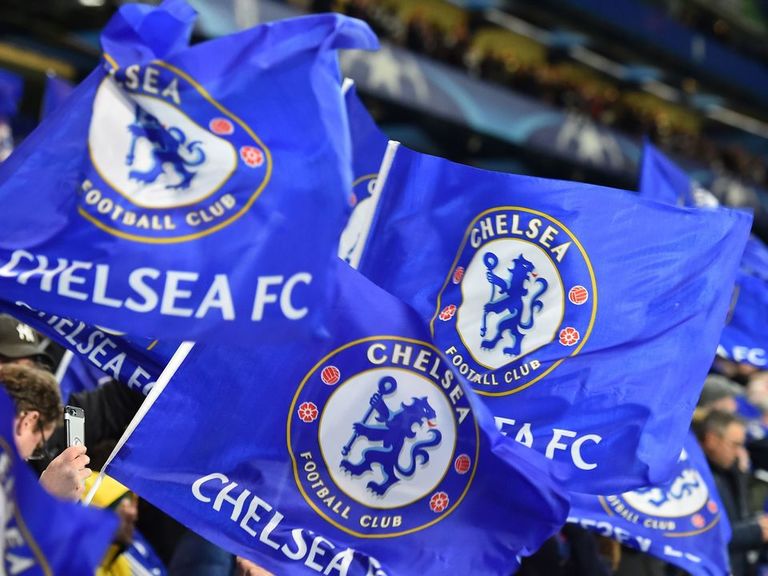Give Barcelona an inch, and the five-time European champion will take a mile.
Few sides will understand that better than Chelsea, who on Wednesday slumped out of the Champions League last-16 stage courtesy of a 3-0 second-leg defeat at the Camp Nou.
Lionel Messi gave the host a third-minute lead, and instead of withdrawing into its habitual defensive shell, Chelsea was on the front foot. Eden Hazard, Willian, and Olivier Giroud were the principal parts of an attack probing Barcelona’s backline in search of an equaliser, and the Blues appeared the more likely of the two sides to score next.
And then, for the umpteenth time in a celebrated career, Messi happened.
The magical Argentine found a surging Ousmane Dembele, whose first goal for the Catalan giant doubled its lead in the 20th minute, giving Barcelona a 3-1 advantage on aggregate.
Same story, different half, as Chelsea showed attacking intent after the break only for Barcelona to take full advantage of the littlest opportunities. Cesar Azpilicueta played an uncharacteristically poor pass under pressure from Andre Gomes that Jordi Alba intercepted and found Messi, who like Dembele’s goal, found the back of the net with an effort that Thibaut Courtois will regret. It meant 3-0 to Barcelona, 4-1 on aggregate, tie done.
#TardeDeCampeones
¡Se apareció el genio ???!
Messi-Messi-Messi otra vez entre las piernas? EN VIVO en TDcom https://t.co/zA0RWG5GE0 pic.twitter.com/wpLaBL9R35
— Televisa Deportes (@TD_Deportes) March 14, 2018
It was Messi’s 100th Champions League goal in just 123 appearances, joining Cristiano Ronaldo as the only players to bag a century of tallies on the continent.
That’s now a record 24 victories against English opponents in Europe’s top-tier tournament, and the 11th season on the trot where Barcelona has made the last eight.
Chelsea will feel like it deserved better, especially after Willian gave the west London lot a surprise lead in the first leg at Stamford Bridge only for Messi to level matters. For a team that has been known to fancy a false nine and a compact midfield, Chelsea was expansive at the Camp Nou, and could have drawn a penalty in the second half when wing-back Marcos Alonso was brought down in the penalty area by Gerard Pique.
11 – Barcelona have reached the quarter-finals for the 11th consecutive season, the longest run in the history of the Champions League. Infallible. pic.twitter.com/8sNKNJa1B8
— OptaJose (@OptaJose) March 14, 2018
It wasn’t to be, nor was progression to the last eight for the first time since 2013-14. Such is the plight of a side faced with the unenviable task of beating Barcelona on club football’s biggest stage.
Barcelona will now await Friday’s draw, with Ernesto Valverde’s lot set to face one of Real Madrid, Sevilla, Liverpool, Manchester City, Juventus, Roma, or Bayern Munich.









